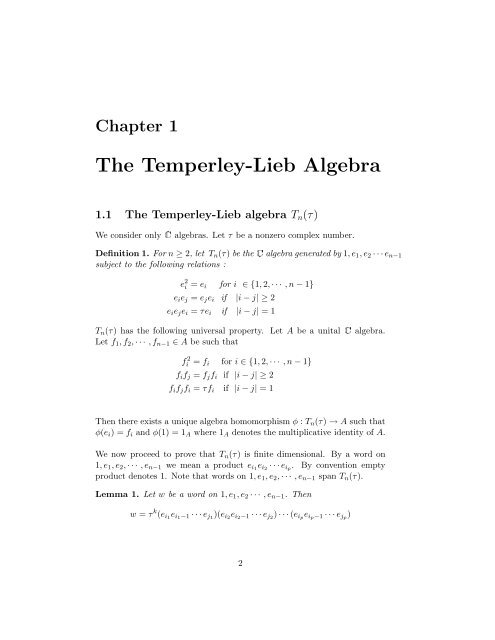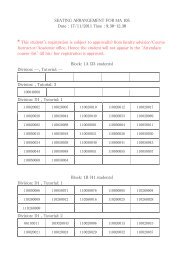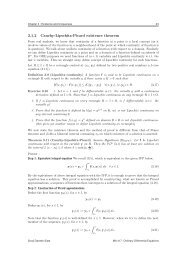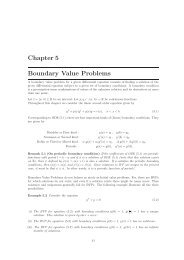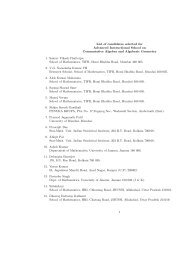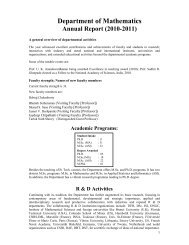the Masters' Thesis of S. Sundar
the Masters' Thesis of S. Sundar
the Masters' Thesis of S. Sundar
You also want an ePaper? Increase the reach of your titles
YUMPU automatically turns print PDFs into web optimized ePapers that Google loves.
Chapter 1<br />
The Temperley-Lieb Algebra<br />
1.1 The Temperley-Lieb algebra Tn(τ)<br />
We consider only�algebras. Let τ be a nonzero complex number.<br />
Definition 1. For n ≥ 2, let Tn(τ) be <strong>the</strong>�algebra generated by 1,e1,e2 · · · en−1<br />
subject to <strong>the</strong> following relations :<br />
e 2 i = ei for i ∈ {1,2, · · · ,n − 1}<br />
eiej = ejei if |i − j| ≥ 2<br />
eiejei = τei if |i − j| = 1<br />
Tn(τ) has <strong>the</strong> following universal property. Let A be a unital�algebra.<br />
Let f1,f2, · · · ,fn−1 ∈ A be such that<br />
f 2 i = fi for i ∈ {1,2, · · · ,n − 1}<br />
fifj = fjfi if |i − j| ≥ 2<br />
fifjfi = τfi if |i − j| = 1<br />
Then <strong>the</strong>re exists a unique algebra homomorphism φ : Tn(τ) → A such that<br />
φ(ei) = fi and φ(1) = 1A where 1A denotes <strong>the</strong> multiplicative identity <strong>of</strong> A.<br />
We now proceed to prove that Tn(τ) is finite dimensional. By a word on<br />
1,e1,e2, · · · ,en−1 we mean a product ei1 ei2 · · · eip. By convention empty<br />
product denotes 1. Note that words on 1,e1,e2, · · · ,en−1 span Tn(τ).<br />
Lemma 1. Let w be a word on 1,e1,e2 · · · ,en−1. Then<br />
w = τ k (ei1 ei1−1 · · · ej1 )(ei2 ei2−1 · · · ej2 ) · · · (eipeip−1 · · · ejp)<br />
2


